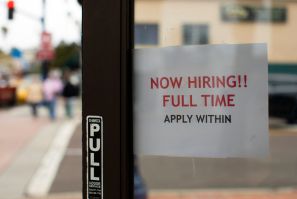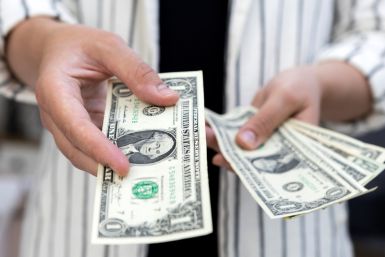OPEC+ producers look set to cut output when they meet on Wednesday, squeezing supply in an oil market that energy company executives and analysts say is already tight due to healthy demand, lack of investment and supply problems.
The Bank of England intervened in the UK government bond market to rein in gilt yields, which rocketed after Britain unveiled a welter of tax cuts to be funded by borrowing on markets.
Two top European Union officials on Tuesday called for joint borrowing to help the 27-nation bloc navigate the energy crunch together, after Germany faced criticism for going its own way with huge subsidies its peers could never afford.
Sri Lanka's central bank is likely to maintain interest rates on Thursday in an effort to get a grip on inflation which has remained stubbornly high despite a sharp contraction in the crisis-hit economy.
Britain's bond market is undergoing "a major repricing", but should comfortably absorb the extra 62 billion pounds ($69 billion) of debt announced after finance minister Kwasi Kwarteng's Sept.
According to a recent LendingClub report, as of August, 45% of Americans who make six figures are living paycheck to paycheck, up from 38% a year ago.
Core consumer prices in Japan's capital, a leading indicator of nationwide inflation, rose 2.8% in September from a year earlier, exceeding the central bank's 2% target for a fourth straight month and marking the biggest gain since 2014.
Oil prices inched higher in early Asian trade on Tuesday, on expectations that OPEC+ may agree to a large cut in crude output when it meets on Wednesday but concerns about the global economy capped gains.
Sterling rose to a fresh post-budget high on Tuesday in Asia, weighing on the broader U.S.
Mexican state power utility Comision Federal de Electricidad (CFE) last year lost an international arbitration case to Canadian firm ATCO Ltd , and had to pay redress of about $85 million, according to three people familiar with the matter.
Federal Reserve Bank of New York President John Williams said on Monday that while there have been nascent signs of cooling inflation, underlying price pressures remain too high, which means the U.S.
U.S. manufacturing activity grew at its slowest pace in nearly 2-1/2 years in September as new orders contracted amid aggressive interest rate increases from the Federal Reserve to cool demand and tame inflation.
European shares gained on Monday, in a positive start to the last quarter of this year, as a slew of bleak economic activity data helped ease some jitters around the pace of monetary policy tightening by central banks to stamp out runaway inflation.
General Motors Co outsold Japanese automaker Toyota Motor Corp in the United States in the third quarter, data on Monday showed, but analysts and investors are fretting that a darkening economic picture will lead to a drop in future car sales.
Chinese refiners are likely to boost refined oil products exports in the last two months of 2022 and into early 2023 after receiving the biggest allocation from Beijing this year, trade sources and analysts said on Monday.
Euribor is making its first push to expand the number of banks contributing to its benchmark rate, a decade after a global rigging scandal that put its very future in doubt.
Italy's economy probably shrank in the third quarter and will keep contracting until mid-2023, according to Treasury forecasts that will make grim reading for Giorgia Meloni, the rightist leader expected to be named prime minister this month.
U.S. stock indexes were set to open higher on Monday after sharp losses last week although losses in Tesla Inc capped the gains for Nasdaq futures after the world's most valuable electric-vehicle maker missed quarterly delivery targets.
Overnight deposits held by the Swiss National Bank plunged by 77.5 billion Swiss francs ($78.32 billion) last week, their biggest ever weekly fall, the latest sign of the central bank's switch to a more restrictive monetary policy.
Mexican President Andres Manuel Lopez Obrador is expected to announce the details of a new deal with companies to halt rising food prices, doubling down on a collaborative effort with the private sector as inflation hovers at a 22-year high.
Chile's sliding peso got a shot in the arm in July from a huge $25 billion central bank intervention, but in recent months has been one of the region's worst performers, showing how hard the battle is for policy makers countering a rampaging dollar.
Euro zone finance ministers are likely to pledge on Monday that national financial shields against soaring energy costs will be temporary and targeted, so as not to trigger a wage-price spiral that would boost already record high inflation, officials said.
Oil jumped on Monday as OPEC+ considered reducing output at its meeting later this week while the pound swung higher after the UK government said it would reverse a controversial tax cut that had roiled British markets.
Japanese Prime Minister Fumio Kishida on Monday vowed to take steps to cushion the economic blow from rising inflation and boost inbound tourism to maximise the benefits from a weak yen, in a fresh attempt to prop up his sliding approval ratings.
Broadening price rises in Japan prompted some central bank policymakers to warn last month that inflation may overshoot expectations, highlighting the challenge Governor Haruhiko Kuroda faces in justifying ultra-low interest rates.
Japanese manufacturer' business mood worsened in the three months to September and corporate inflation expectations hit a record high, a central bank survey showed, as stubbornly high material costs clouded the outlook for the fragile economy.
The Australian and New Zealand dollars gained ground on Monday ahead of expected rate hikes from their respective central banks later in the week, while the dollar slipped against a basket of currencies.
OPEC+ will consider an oil output cut of more than a million barrels per day (bpd) next week, OPEC sources said on Sunday, in what would be the biggest move yet since the COVID-19 pandemic to address oil market weakness.
Calls to the Bank of England saying some British pension funds were struggling to meet margin calls began on Monday. By Wednesday they were getting more urgent and coordinated.
Investors have dumped UK assets after the British government announced plans for a huge rise in borrowing to fund tax cuts, but Germany has not suffered the same punishment despite a vast borrowing spree of its own.



















































